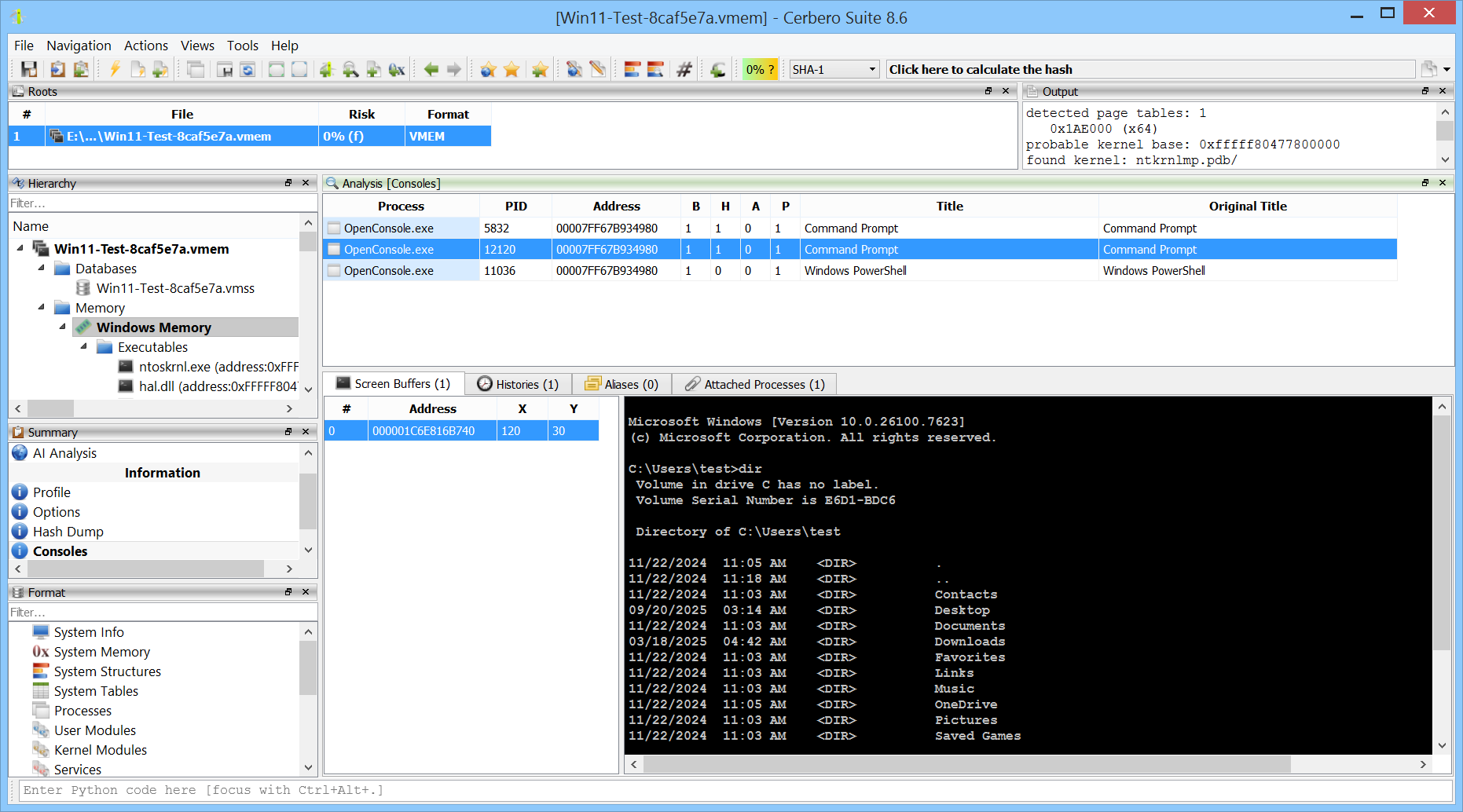We are excited to announce the release of the Memory Analysis 0.8 package. The main feature of this version is the introduction of console information extraction.

We are excited to announce the release of the Memory Analysis 0.8 package. The main feature of this version is the introduction of console information extraction.

We’re testing our Memory Analysis package (currently in beta) against various challenges available online.
We found this challenge on Hack The Box, so credit goes to them for creating it.
We’re testing our Memory Analysis package (currently in beta) against various challenges available online.
We found this challenge on the Memory Forensic site, so credit goes to them for highlighting it and to Hack The Box for creating it in the first place.
We’re testing our Memory Analysis package (currently in beta) against various challenges available online.
We found this challenge on the Memory Forensic site, so credit goes to them for highlighting it and to CyberDefenders for creating it in the first place.
We’re testing our Memory Analysis package (currently in beta) against various challenges available online.
We found this challenge on the Memory Forensic site, so credit goes to them for highlighting it and to CyberDefenders for creating it in the first place.
We’re testing our Memory Analysis package (currently in beta) against various challenges available online.
We found this challenge on Hack The Box, so credit goes to them for creating it.
We are excited to announce the release of the Memory Analysis 0.7.6 package. This version introduces several improvements, some of which stem from testing our solution against various CTF challenges and didn’t make it into version 0.7.
We’re testing our Memory Analysis package (currently in beta) against various challenges available online.
We found this challenge on the Memory Forensic site, so credit goes to them for highlighting it and to Hack The Box for creating it in the first place.
We released the XST Format package, which adds support for Microsoft Outlook PST and OST email data formats.

The package makes it possible to explore every part of an email container, including messages, folder structures, metadata and attachments.
We’re testing our Memory Analysis package (currently in beta) against various challenges available online.
We found this challenge on the Memory Forensic site, so credit goes to them for highlighting it and to CyberDefenders for creating it in the first place.